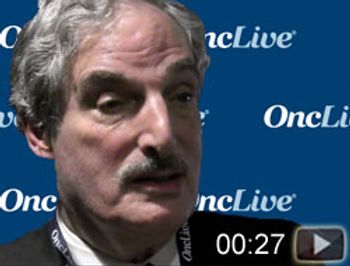
David J. Straus, MD, internist and hematologic oncologist, Memorial Sloan Kettering Cancer Center, discusses the FDA approval of pembrolizumab (Keytruda) as a treatment for patients with Hodgkin lymphoma.

Your AI-Trained Oncology Knowledge Connection!


David J. Straus, MD, internist and hematologic oncologist, Memorial Sloan Kettering Cancer Center, discusses the FDA approval of pembrolizumab (Keytruda) as a treatment for patients with Hodgkin lymphoma.

Ola Landgren, MD, PhD, discusses a new clinical trial at Memorial Sloan Kettering examining a novel myeloma-directed CAR T-cell therapy developed by researchers at the cancer center.

Alexander Drilon, MD, medical oncologist, Memorial Sloan Kettering Cancer Center, discusses NTRK rearrangement in patients with lung cancer.

Michael J. Morris, MD, discusses a phase I/II trial in which the combination of radium-223 (Xofigo) and docetaxel had a greater effect than docetaxel alone on bone biomarkers in patients with bone-metastatic castration-resistant prostate cancer.
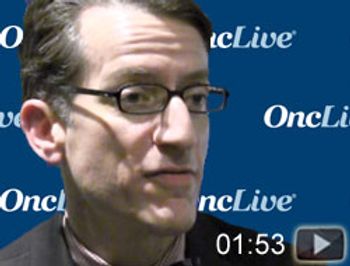
Michael J. Mauro, MD, a hematologist and leader of the Myeloproliferative Neoplasms Program at Memorial Sloan Kettering Cancer Center, discusses some of the emerging and current therapies for patients with myeloproliferative neoplasms (MPNs).
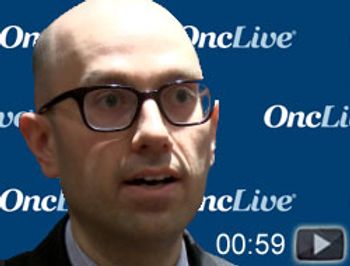
Eric Smith, MD, PhD, a medical oncologist at Memorial Sloan Kettering Cancer Center, discusses the potential of immunotherapy in the treatment landscape of multiple myeloma.

Eric Smith, MD, PhD, discusses recently reported phase II data combining elotuzumab (Empliciti) with lenalidomide (Revlimid) and dexamethasone.
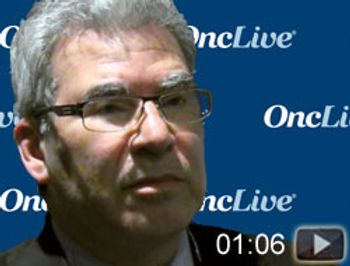
Martin S. Tallman, MD, hematologic oncologist, chief of Leukemia Service, Memorial Sloan Kettering Cancer Center, discusses the state of the science with regards to treatment of patients with acute myeloid leukemia (AML).
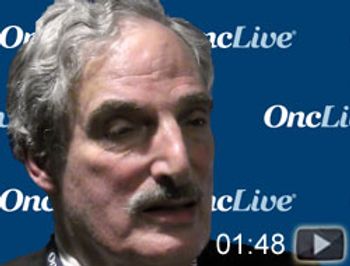
David J. Straus, MD, an internist and hematologic oncologist at Memorial Sloan Kettering Cancer Center, discusses ongoing clinical trials in the field of Hodgkin lymphoma.
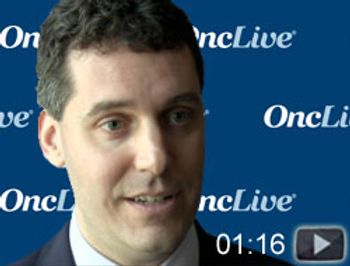
Michael A. Postow, MD, medical oncologist, Memorial Sloan Kettering Cancer Center, discusses some of the advancements that have recently taken place in immunotherapy in the field of melanoma.

Rovalpituzumab tesirine demonstrated encouraging single-agent antitumor activity with a manageable safety profile in the treatment of patients with recurrent small cell lung cancer.
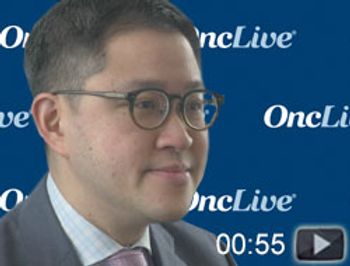
Geoffrey Y. Ku, MD, medical oncologist at Memorial Sloan Kettering Cancer Center discusses immunotherapy treatments for patients with gastric and esophageal cancers.
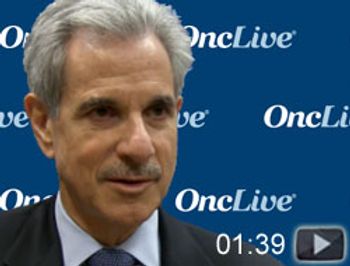
Howard I. Scher, MD, chief, Genitourinary Oncology Service, Memorial Sloan Kettering Cancer Center, discusses the potential that liquid biopsies will have in the treatment landscape of prostate cancer.

Alexander Drilon, MD, medical oncologist, Memorial Sloan Kettering Cancer Center, discusses RET rearrangements for patients with non–small cell lung cancer (NSCLC).

Chung-Han (Joe) Lee, MD, medical oncologist at Memorial Sloan Kettering Cancer Center, discusses the future of immunotherapy in the treatment landscape of renal cell carcinoma.
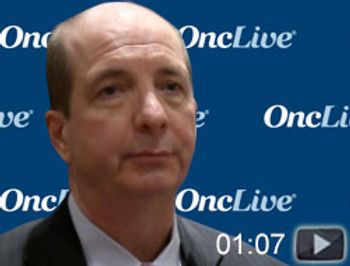
Robert J. Motzer, MD, medical oncologist at Memorial Sloan Kettering Cancer Center, 2016 Giant of Cancer Care in Genitourinary Cancer, discusses the data seen thus far with nivolumab plus ipilimumab in the treatment of patients with renal cell carcinoma.

Sergio Giralt, MD, a professor of Medicine at Memorial Sloan Kettering Cancer Center, discusses the future role of transplantation in patients with multiple myeloma as well as other hematologic malignancies.
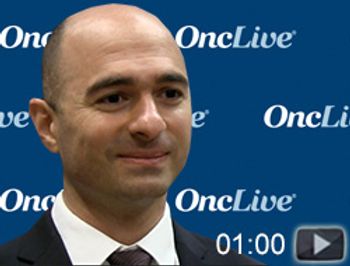
Wassim Abida, MD, PhD, Memorial Sloan Kettering Cancer Center, discusses the future of hormonal therapy in prostate cancer.
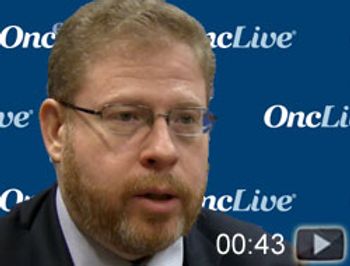
Jonathan E. Rosenberg, MD, medical oncologist, Memorial Sloan Kettering Cancer Center, discusses the potential that immunotherapy has in the frontline setting for patients with bladder cancer.
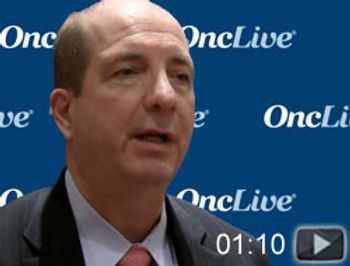
Robert J. Motzer, MD, medical oncologist at Memorial Sloan Kettering Cancer Center, 2016 Giant of Cancer Care in Genitourinary Cancer, discusses the explosion of immunotherapy in the landscape of renal cell carcinoma (RCC).
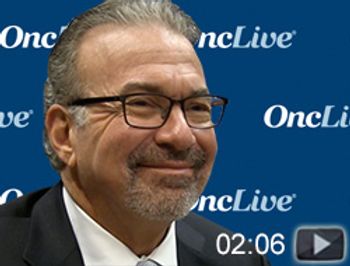
Philip W. Kantoff, MD, chair of the Department of Medicine, Memorial Sloan Kettering Cancer Center and a 2014 Giants of Cancer Care winner for Genitourinary Cancer, discusses the combination of docetaxel (Taxotere) chemotherapy and androgen deprivation therapy (ADT) in the setting of metastatic hormone-sensitive prostate cancer.
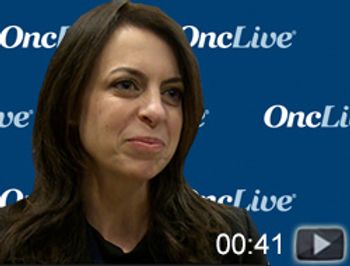
Dana E. Rathkopf, MD, Memorial Sloan Kettering Cancer Center, discusses the emergence of the androgen receptor splice variant-7 (AR-V7) biomarker in the treatment of patients with prostate cancer.
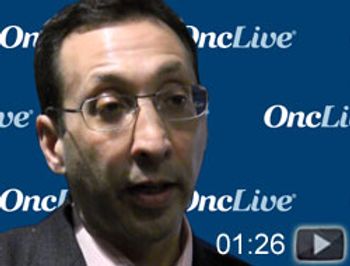
Steven Horwitz, MD, associate attending physician at Memorial Sloan Kettering Cancer Center, discusses some of the ongoing clinical trials being explored in T-cell lymphoma.

C. Ola Landgren, MD, PhD, chief of Myeloma Service at Memorial Sloan Kettering Cancer Center, discusses the use of the triplet of daratumumab, bortezomib, and dexamethasone in the treatment of patients with relapsed myeloma.
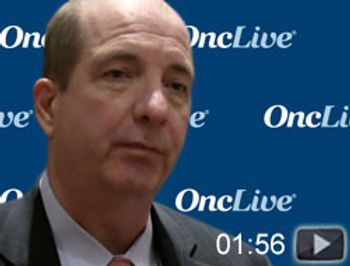
Robert J. Motzer, MD, attending physician, Genitourinary Oncology Service, Memorial Sloan Kettering Cancer Center, and professor of Medicine, Weill Medical College, Cornell University, discusses the FDA approval of nivolumab (Opdivo) versus everolimus (Afinitor) for patients with advanced renal cell carcinoma (RCC).
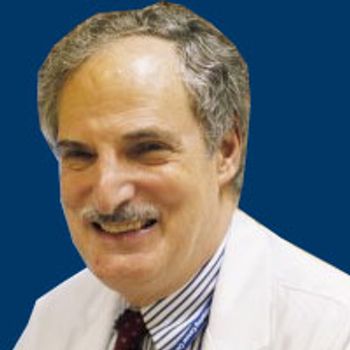
Since the FDA approval of nivolumab in May 2016, researchers continue to explore agent as well as its fellow PD-1 inhibitor, pembrolizumab, in various treatment settings for patients with Hodgkin lymphoma.
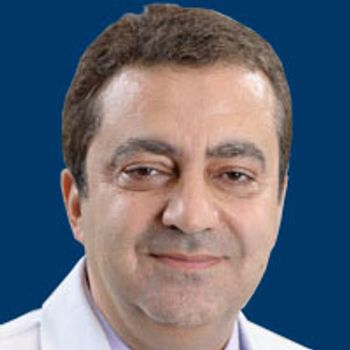
The fields of mantle cell lymphoma and diffuse large B-cell lymphoma had a handful of updates presented during the 2016 ASH Annual Meeting.

Emerging therapies in myeloproliferative disorders such as chronic myeloid leukemia, polycythemia vera, and myelofibrosis could have the potential to shake up the landscape.

Though T-cell lymphoma is a more rare hematologic malignancy, researchers are exploring therapies such as brentuximab vedotin to improve outcomes for these patients.

C. Ola Landgren, MD, PhD, chief of Myeloma Service at Memorial Sloan Kettering Cancer Center, discusses unanswered questions following the results of the phase III POLLUX and CASTOR studies, which explored the addition of daratumumab (Darzalex) to lenalidomide (Revlimid) and dexamethasone or bortezomib (Velcade) and dexamethasone, respectively.